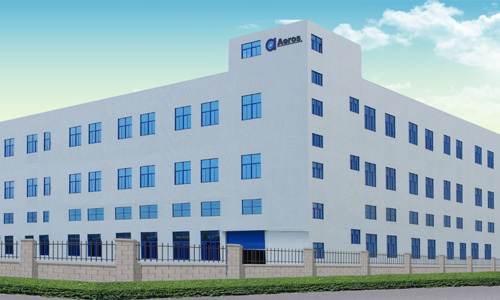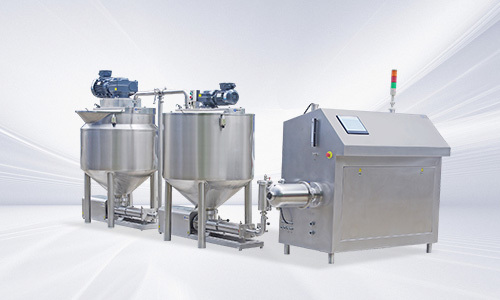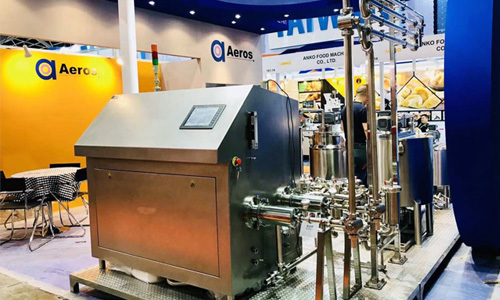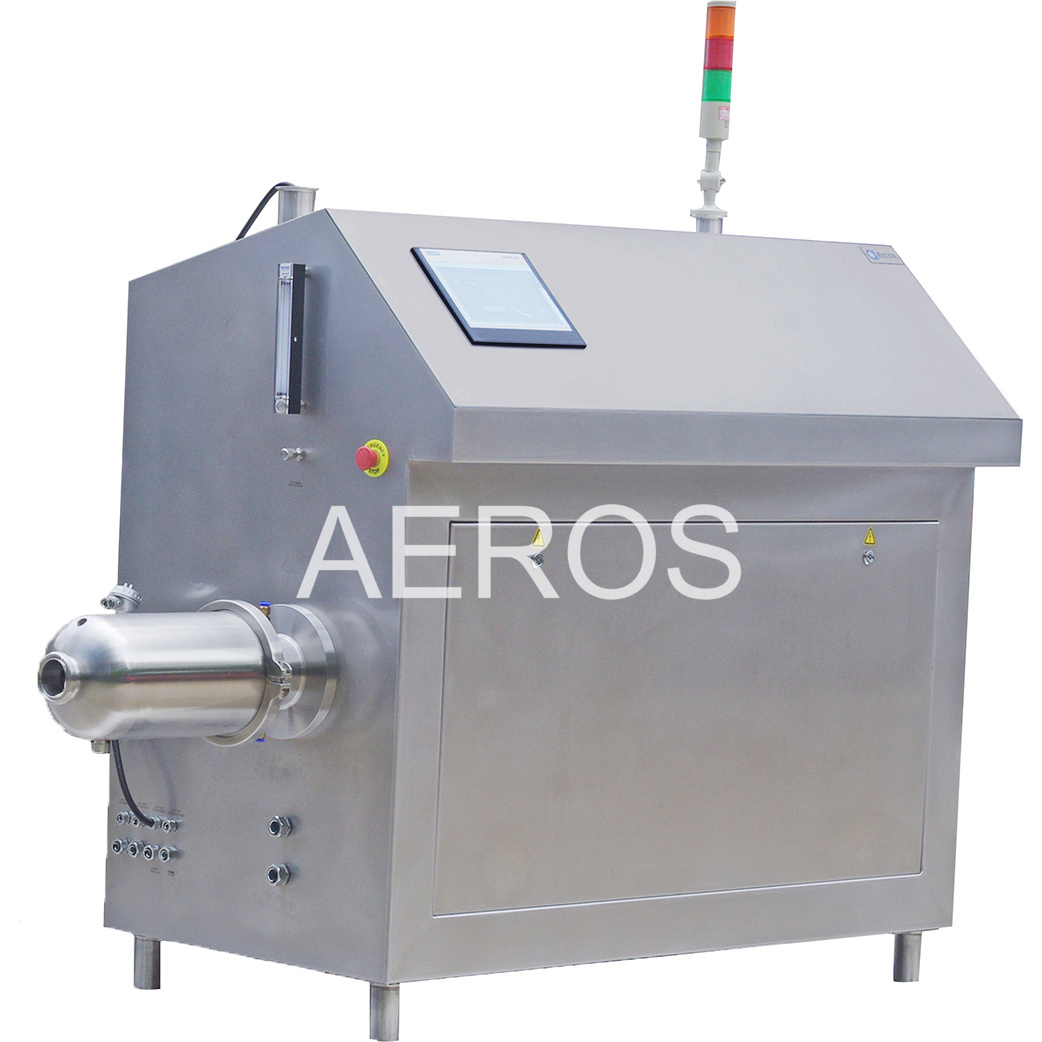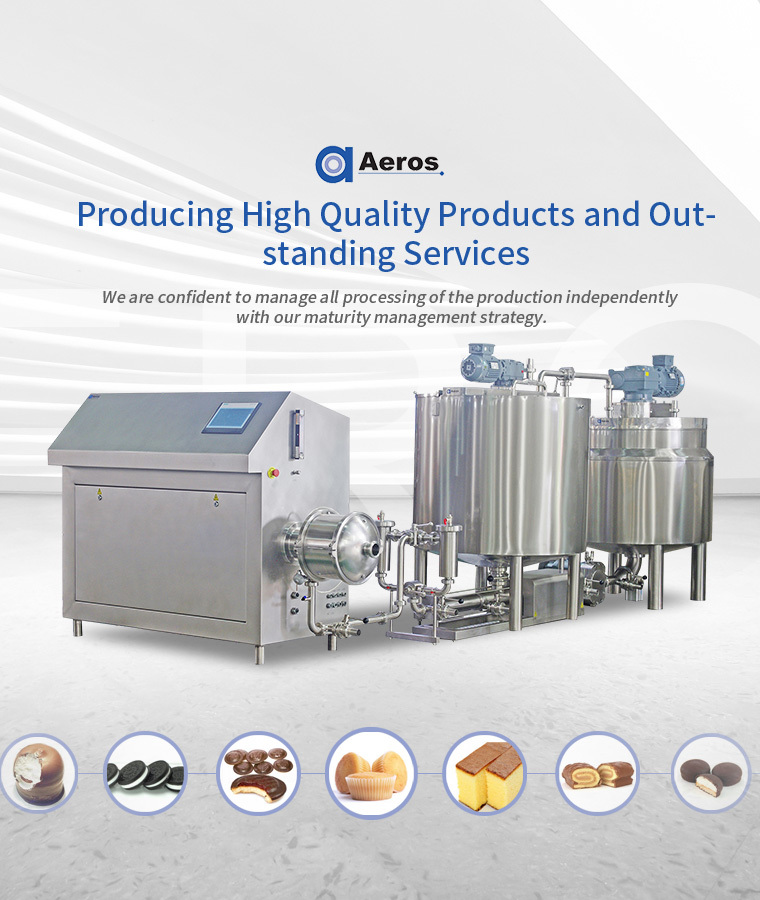Innovative Solutions for Your Yogurt Production Line: Enhancing Efficiency and Quality

2025/06/08
Innovative Solutions for Your Yogurt Production Line
Table of Contents
- Introduction
- Importance of Efficient Yogurt Production
- Advancements in Yogurt Processing Machinery
- Automation in Yogurt Production
- Quality Control in Yogurt Manufacturing
- Sustainability in Yogurt Production
- Case Studies of Successful Yogurt Lines
- Frequently Asked Questions
- Conclusion
Introduction
In the ever-evolving world of food and beverage processing, yogurt production stands out as a sector ripe for innovation. The increasing consumer demand for high-quality, nutritious yogurt has pushed manufacturers to seek **innovative solutions** that enhance production efficiency and product quality. We will explore various strategies and technologies that revolutionize yogurt production lines, enabling businesses to meet market demands while optimizing their processes.
Importance of Efficient Yogurt Production
Yogurt is not just a popular dairy product; it represents a significant portion of the global dairy market. With the rise in health consciousness, consumers gravitate towards yogurt for its probiotic benefits and versatility. An efficient yogurt production line is essential for several reasons:
Meeting Consumer Demands
The modern consumer expects variety and quality. Yogurt offerings extend from traditional plain varieties to Greek, plant-based, and flavored yogurts. Efficient production lines allow manufacturers to respond quickly to changing trends and preferences.
Cost-Effectiveness
Streamlining production processes minimizes waste and lowers operational costs. An efficient yogurt production line can significantly enhance profitability by maximizing output without compromising quality.
Regulatory Compliance
Food safety regulations are stringent in the dairy industry. Efficient production systems incorporate quality control measures that ensure compliance with all regulations, reducing the risk of contamination.
Advancements in Yogurt Processing Machinery
The backbone of any yogurt production line is its machinery. Recent advancements have transformed the way yogurt is produced.
High-Shear Mixers
High-shear mixers play a pivotal role in yogurt production. These machines ensure uniform blending of ingredients, promoting consistency in texture and flavor. The introduction of intelligent mixing technologies allows for precise control over the mixing process.
Pasteurization Technology
Modern pasteurization techniques, such as **Ultrapasteurization** and **HTST (High-Temperature Short Time)**, guarantee the elimination of harmful bacteria while retaining essential nutrients. These technologies not only enhance safety but also improve product shelf life.
Fermentation Systems
Innovative fermentation systems equipped with real-time monitoring ensure optimal conditions for yogurt cultures. These systems can adjust temperature and pH levels automatically, resulting in improved flavor profiles and texture.
Automation in Yogurt Production
Automation is revolutionizing yogurt production lines by enhancing efficiency and reducing labor costs.
Robotics in Yogurt Packaging
Robotic systems in packaging lines increase speed and precision. They handle packaging tasks, such as filling and sealing, with minimal human intervention, reducing the risk of contamination and ensuring consistent product presentation.
IoT Integration
The Internet of Things (IoT) allows for seamless integration of machinery and systems. Real-time data collection helps monitor production processes, allowing for quick adjustments that prevent downtime and maintain quality.
Predictive Maintenance
With the integration of AI and machine learning, predictive maintenance systems can forecast machinery failures before they occur. This proactive approach minimizes downtime and extends the lifespan of equipment.
Quality Control in Yogurt Manufacturing
Quality control is essential in yogurt production to ensure safety, consistency, and customer satisfaction.
Microbial Testing
Frequent microbial testing of raw materials and finished products is crucial. Advanced testing methods enable manufacturers to detect contaminants swiftly, ensuring that only safe products reach consumers.
Texture and Flavor Analysis
Understanding consumer preferences for texture and flavor is vital. Employing sensory analysis and consumer testing provides insights that drive product development and refinement.
Traceability Systems
Implementing robust traceability systems allows manufacturers to track ingredients from farm to production line. This transparency enhances consumer trust and ensures compliance with food safety regulations.
Sustainability in Yogurt Production
Sustainable practices are becoming increasingly important in the food industry, including yogurt production.
Energy Efficiency Measures
Investing in energy-efficient machinery and processes reduces the carbon footprint of yogurt production. Technologies such as heat recovery systems can capture and utilize excess heat generated during production.
Waste Reduction Strategies
Implementing waste reduction strategies, such as reusing by-products and optimizing ingredient sourcing, contributes to sustainability. Manufacturers can explore creative ways to repurpose waste materials, enhancing their sustainability profile.
Sustainable Packaging Solutions
The move towards eco-friendly packaging is gaining momentum. Utilizing biodegradable or recyclable packaging materials aligns with consumer preferences and reduces environmental impact.
Case Studies of Successful Yogurt Lines
Examining successful yogurt production lines provides valuable insights into the implementation of innovative solutions.
Case Study 1: Brand A
Brand A integrated high-shear mixing technology into its production line, resulting in a 20% increase in product consistency. Their investment in automation reduced labor costs significantly while enhancing overall production speed.
Case Study 2: Brand B
Brand B adopted IoT technology to streamline its fermentation process, allowing for real-time adjustments. This innovation improved fermentation efficiency by 25%, leading to higher quality yogurt and reduced production time.
Case Study 3: Brand C
Brand C focused on sustainability by utilizing energy-efficient machinery and biodegradable packaging. Their commitment to sustainable practices resonated with consumers, resulting in a 30% increase in market share.
Frequently Asked Questions
1. What are the benefits of automation in yogurt production?
Automation improves efficiency, reduces labor costs, and ensures consistent product quality.
2. How can yogurt manufacturers ensure product quality?
By implementing rigorous quality control measures, including microbial testing and sensory analysis.
3. What are the latest trends in yogurt production?
Current trends include plant-based yogurts, functional ingredients, and sustainable packaging solutions.
4. How does IoT technology enhance yogurt production?
IoT technology provides real-time data monitoring, improving process control and minimizing downtime.
5. What steps can be taken to make yogurt production more sustainable?
Investing in energy-efficient machinery, reducing waste, and using eco-friendly packaging are key strategies for sustainability.
Conclusion
Innovative solutions in yogurt production are not merely trends; they are essential strategies for manufacturers aiming to thrive in a competitive market. By embracing advancements in technology, automation, and quality control, yogurt producers can enhance efficiency and product quality while adhering to sustainability principles. As we move forward, the integration of these innovative solutions will be crucial in meeting consumer demands, ensuring safety, and remaining competitive in the dynamic food industry.
Yogurt production line
Previous Page

